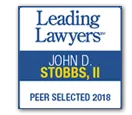Law enforcement agencies have been increasingly dependent on drug-detection K-9’s, but are their results reliable in court?
A K-9 must have completed a training course and be certified in order to be used on the field or for a K-9’s alerts to be recognized by a court. In the recent years, the effectiveness and reliability of K-9 and K-9 training have been raising questions that have lead courts to re-evaluate the proper approach of assessing K-9 searches.
The K-9 training course and requirements vary per state. Some state legislatures have been implementing laws in order to have a statewide standard. For example, in Illinois, the Illinois General Assembly passed a law requiring a K-9 to undergo training and obtain certification under a standard similar to that of the Scientific Working Group on Dog and Orthogonal Detector Guidelines (SWGDOG). SWGDOG is a nationwide standard that was established to develop a consensus-based ‘best practice’ system to enhance the performance of K-9 teams and to optimize their use in combination with electronic detectors. SWGDOG was established in order to improve the reliability of a K-9’s alert during a search, the evidence of that search and the K-9’s training presented in court. Under the Illinois law, 50 ILCS 705/10.12, law enforcement agencies must have their K-9 annually certified, each time meeting the stated requirements designated by the Illinois General Assembly Board.
Majority of courts, both state and federal, treat K-9 alerts as per se probable cause when the K-9 is trained and reliable. Until recently, these courts were quick to find this standard based simply on affidavits from the dog’s officer or handler stating their dog was trained or certified. Then in recent years, courts began applying limitations as to the factors considered when determining a K-9’s reliability. Particularly, in Florida v. Harris, the U.S. Supreme Court held that each party should be allowed to make their best case in order to prove that the K-9’s performance was reliable, as oppose to Florida’s previous “check list” test, as described below.
When a court tests whether an officer has probable cause to conduct a search all that is required is the kind of “fair probability” on which “reasonable and prudent people act.” The Florida Supreme Court had created a strict evidentiary checklist to assess a drug-detection K-9’s reliability, where the State would need to introduce comprehensive documentation of the K-9’s prior hits and misses in the field. The U.S. Supreme Court quickly dismissed this, reasoning that this caused too many inaccuracies, especially with false alerts—both positives and negatives. For that reason, the U.S. Supreme Court found that evidence of a dog’s satisfactory performance in a certification or training program can itself provide sufficient reason to trust the K-9’s alert. However, the Supreme Court also found that the defendant must have an opportunity to challenge such evidence of a K-9’s reliability. For example, the defendant may contest the adequacy of a certification or training program, examine how the K-9 or the handler performed in the assessments, or even say the officer cued the K-9.
Dogs are creatures of habit and officers or handlers can create subtle cues, whether intentional or unintentional, which can cue the K-9 to alert during a search, especially when the officer or handler has reason to believe there is contraband present. Unfortunately, courts regularly overlook this fact. Judges often trust the testimony of a K-9 officer because they fail to recognize the K-9 officer or handler’s role in or effect on a search. This leads to another weakness in the use of a K-9.
Moreover, problems like residue or trace odors may trigger a false positive alert. These false positive alerts, which can be caused by previous contact with a narcotic by either the serchee or a third party, leads the K-9’s officer or handler to believe there is probable cause. Even if the alert is valid, the alert is often to the odor of a narcotic, which the K-9 is trained to detect, and not the presence of the actual contraband. In these cases, the officer does not meet the proper requirements needed to perform a search and is therefore violating the serchees Fourth Amendment rights.
The Illinois Appellate Court recently decided a case based on the U.S. Supreme Court’s decision in Florida v. Harris. In People v. Litwhiler, the defendant’s conviction resulted from a traffic stop during which a police officer found the defendant in possession of a controlled substance. The K-9’s handler testified that the K-9 used during the traffic stop was certified in a ten-week training session where it was taught apprehension, tracking, and the detection and recognition of different scents and odors of contraband. In addition, the handler was certified and the K-9 was re-certified two times a year to do narcotic and apprehension work. The defendant argued that the K-9 was not sufficiently certified; yet the court found that the record proved otherwise. The record indicated that 66% of the time the K-9 alerted, narcotics were found. This, along with other evidence, lead the court to hold that the field alert statistics and the handler’s testimony were sufficient to satisfy the State’s burden of proving the K-9’s reliability.
Court decisions and legislations, like the one passed by the Illinois General Assembly, are increasingly testing the limits of a K-9’s use in the field by law enforcement officers. Although most cases will be decided on a case to case basis, these changes will lead courts to take a second look at a K-9’s reliability when convicting a defendant based on a K-9’s alert.
References
Florida v. Clayton Harris, 133 S.Ct. 1050, (2013).
Jeff Weiner, Police K-9’s and the Constitution: What Every Lawyer and Judge Should Know, The Champion, April 2012.
Patrick Yeagle, Drug Dogs Fail the Sniff Test, Illinois Times, January 9, 2014.
People v. Litwhiler, 12 N.E3d 141 (Ill. App. Ct. 2014).




